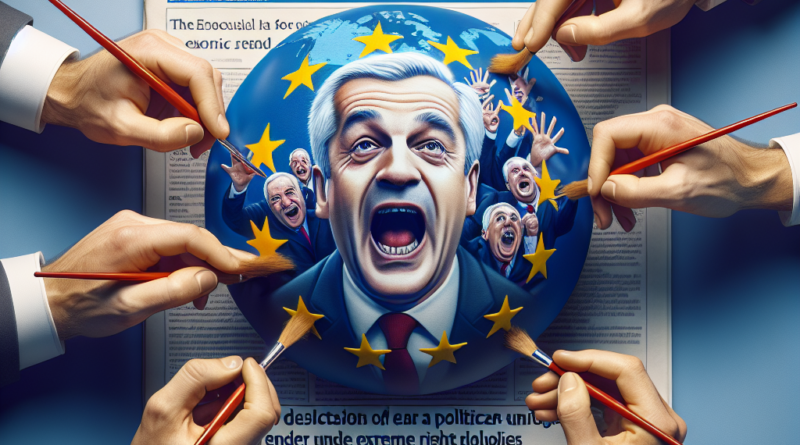Will the Far Right Tear the European Union Apart?
The Rise of the Far Right in Europe
Following the European elections, many are wondering whether the far right could trigger a crisis within the European Union.
Despite the significant growth of right-wing parties across the EU, it seems likely that the power in Brussels will remain in the hands of the traditional parties such as the Popular, Socialist, and Liberal groups.
Strong Presence of Right-Wing Parties
The electoral results have showcased the growing influence of right-wing parties in Europe.
Leaders like Giorgia Meloni in Italy, Marine Le Pen in France, and the AfD in Germany have all shown significant success.
Additionally, parties like the FPÖ in Austria, Fidesz in Hungary, PiS in Poland, PVV in the Netherlands, and the Swedish Democrats have all strengthened their positions.
While many of these parties have built their success on euroscepticism, only AfD has openly advocated for Germany’s exit from the EU, proposing a referendum on the matter.
Others, like Marine Le Pen, have shifted their focus to reforming rather than leaving the EU, mirroring the strategies of politicians like Matteo Salvini and Giorgia Meloni in Italy.
Challenges for the EU
Despite the increasing influence of right-wing parties, it is unlikely that they could dismantle the European Union in the next five years.
However, their growing strength could impact the strategies of the European Commission and influence the future direction of the EU.
Factors Limiting Far-Right Influence
Two significant factors will likely prevent the far right from completely reshaping the European Union.
Firstly, the collective number of these parties in the European Parliament falls short of forming a majority, limiting their legislative power.
Secondly, many of these parties seek influence within the EU rather than its destruction, aiming to have a say in Brussels’ decision-making processes.
As the political landscape evolves, the future of initiatives like the Green Deal—a comprehensive plan for climate neutrality with substantial investments—remains uncertain.
Negotiations with the Greens to secure their support for the Commission’s presidency hint at potential hurdles, as some parties seek to alter or hinder such progressive policies.
The outcome of these deliberations will heavily depend on the next Commission president and the supporting majority.
While the rise of the far right poses challenges, a radical shift in EU policies seems unlikely in the near future.




